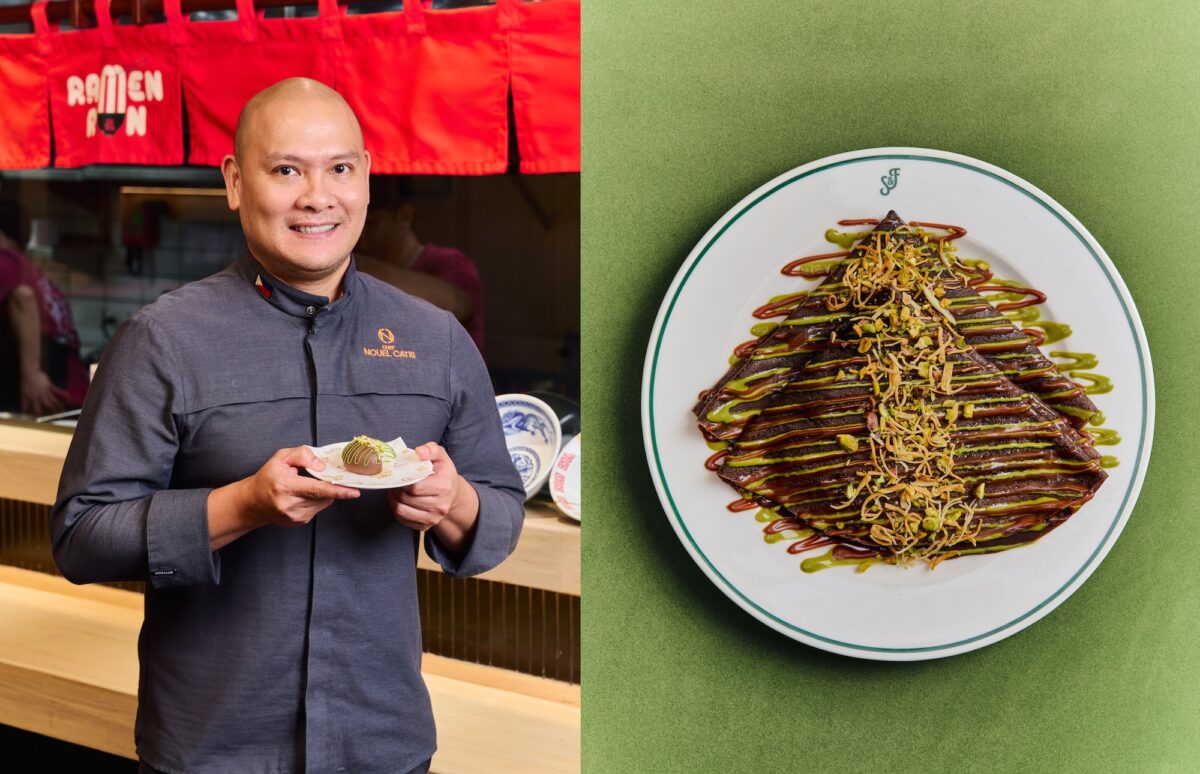
Hollywood’s darling, Jennifer Lawrence, called it the “new, cool eating disorder, the basically-I-don’t-eat-carbs” diet, in the October issue of Vanity Fair. But do you even know what a gluten-free diet is—why it’s important, and who benefits from it?
The rather careless remark from the A-list actor aligned the gluten-free diet with real eating disorders, such as anorexia nervosa and bulimia nervosa, and angered gluten-free advocates around the world.
While it’s true that some people abuse scientifically studied, legitimate diets, such as gluten-free, for their obsessive need to lose weight, JLaw’s statement is a broad generalization of a diet that is actually necessary for some people to live comfortably.
Roy Amores, a father of five, had suffered from stuffy nose since he was a little boy. His allergic rhinitis was so bad he found it hard to sleep and breathe. Even worse, he learned from doctors that his allergy had no cure.
“The medicines and nasal sprays prescribed to me only alleviated the symptoms but did not remove the disease. So I did my own research, learned about the gluten-free diet, and decided to test if I was intolerant to it,” Amores said.
There are food-intolerance tests one can undergo, but Amores chose the cheapest: he eliminated gluten from his diet and waited for one to two months for the results to kick in.
Allergy-free
That was in 2009. Five years later, the now allergy-free Amores still follows a gluten-free diet, and has since launched his own gluten-free bakery and pastry brand, the Amores Gluten-Free Foods.
Over time, his family followed suit. Amores said since they have the same blood type, his children most likely have the same food intolerances.
“Gluten is the protein part of wheat, oat, rye and barley. It is the one responsible for the elasticity of dough and chewiness of breads. It doesn’t have a specific role in the body but it may trigger an abnormal immune response in the body once a person with sensitivity ingests it,” said Kim Margarette Lao, nutritionist at Healthy Options.
Going gluten-free means giving up bread, pasta, pizza, cakes, muffins and other carb-loaded goodies. It’s not an easy lifestyle choice, since gluten is found in many common and highly nutritious foods, including whole-grain foods.
“When you’re intolerant to certain foods, your body will view it as poison, so it will develop a tendency to retain water. Usually, when people get sick it has something to do with food intolerance,” Amores said.
It’s not the weather that’s giving you a runny nose, for instance; its food intolerance, Amores said. Even without medication, he said that drinking plenty of water normally makes you feel better in three to five days.
Gluten intolerance can range from mild to severe. You may be intolerant and not know it, said Amores, since gluten intolerance have common symptoms usually associated with other conditions, like headaches, bloating, falling hair, skin problems, and even mood swings, among others.
People with celiac disease, an immune reaction to gluten that triggers inflammation to the small intestines, completely avoid gluten since consuming it, no matter how small, instantly causes stomach pain and bloating.
Intolerance
“Gluten acts as an antigen to the body, therefore damaging the lining of the small intestine and preventing nutrients from being absorbed in people with celiac disease,” Lao said.

Failing to have yourself tested for intolerance poses a real danger, in case you might actually be gluten-intolerant, as it will one day damage your intestines and eventually your liver, the body’s built-in filter that will be working overtime to keep your system clean.
“Your body knows it better. Some studies recommend for you to go on an elimination diet, in which you’ll not take in foods that have gluten for at least a month, then reintroduce it. When you experience allergic reactions, usually on the skin, respiratory or gastrointestinal systems, chances are high that you might be sensitive to it. Another option is to undergo a test for celiac disease, which our hospitals offer,” Lao said.
Recent studies also show that a gluten-free diet is beneficial for children with autism, Lao added. “These children don’t process gluten in the body normally, leading to a worsening of the symptoms of autism. Some of the theories conclude that gluten and casein (milk protein) are recognized by the brain opiate-like chemicals, resulting in an even more hyperactive child. Eliminating gluten from the diet may improve the child’s behavior.”
Avoid wheat flour, wheat bran, wheat germ, oatmeal, oat bran, oat flour, rye berries, rye flour, rye bread, semolina (used in making pasta and/or noodles), couscous, barley, brewer’s yeast, and malt (yup, that includes beer) if you’re intolerant to gluten.
A gluten-free diet will not deprive you of carbs. Rice, for instance, does not contain gluten.
Lao added that unless you are sensitive to gluten, eliminating it from your diet is not necessary, since doing so will deprive your body of essential nutrients found in whole-grain foods, such as B vitamins, fiber and iron.
You avoid gluten only when it has damaging effects on your body, Lao said. Otherwise, you’re much better off ignoring the gluten-free diet fad.
In the United States, the Mayo Clinic estimates that about 1 percent of Americans have celiac disease, and about 6 percent have gluten intolerance. And yet, since the gluten-free fad swept across America, approximately 29 percent of Americans are now trying to avoid gluten.
And this is probably where JLaw raised a good point: When healthy people begin to avoid gluten because it’s the “in” thing to do, it may someday lead to an eating disorder.












































